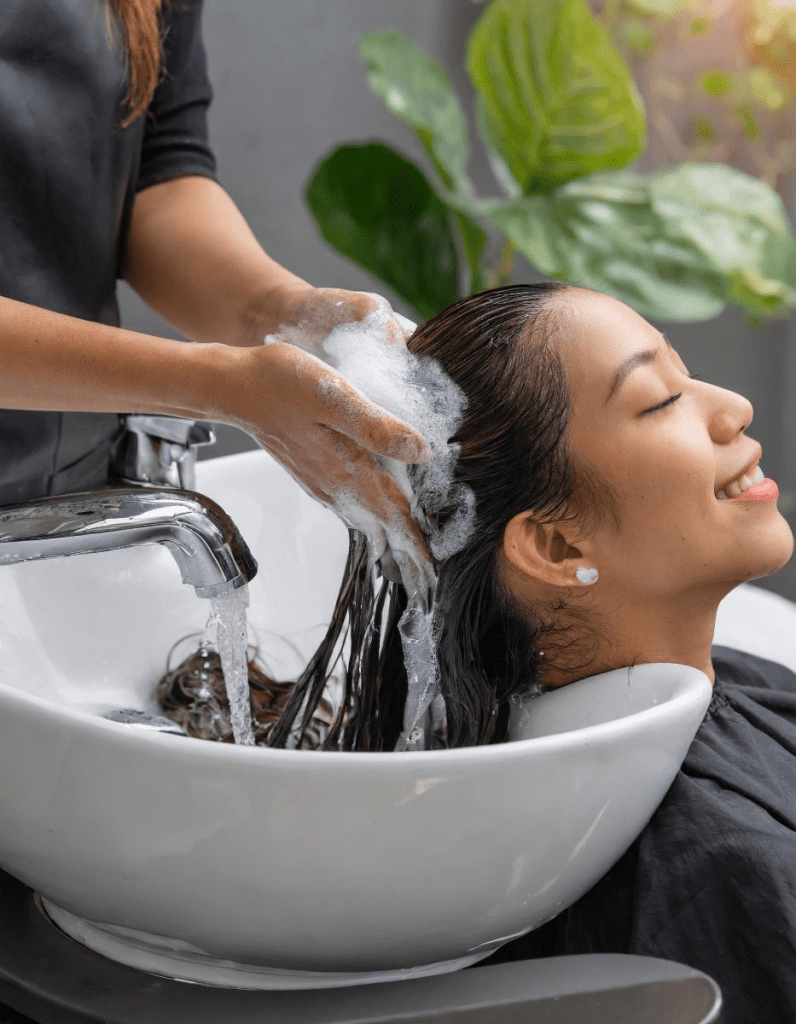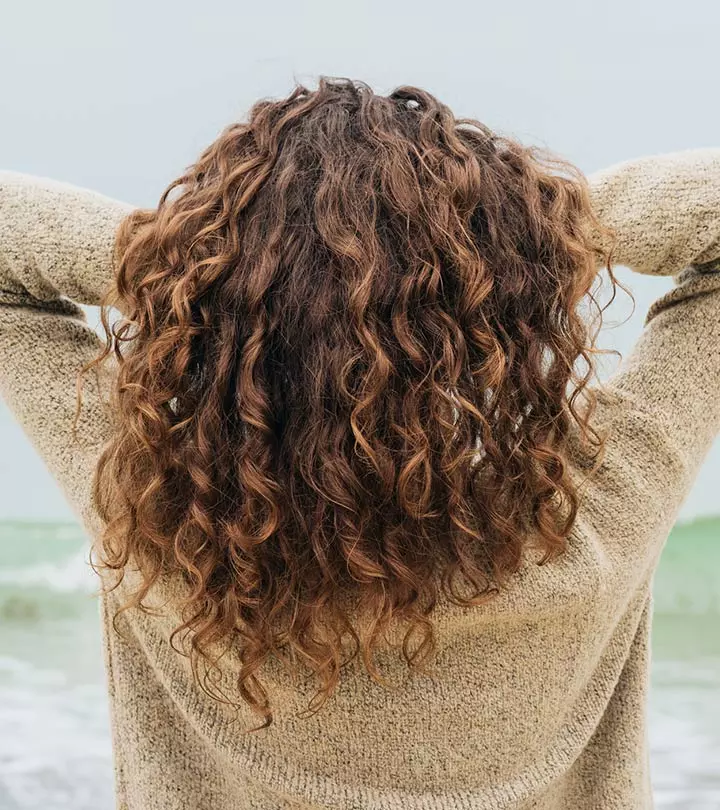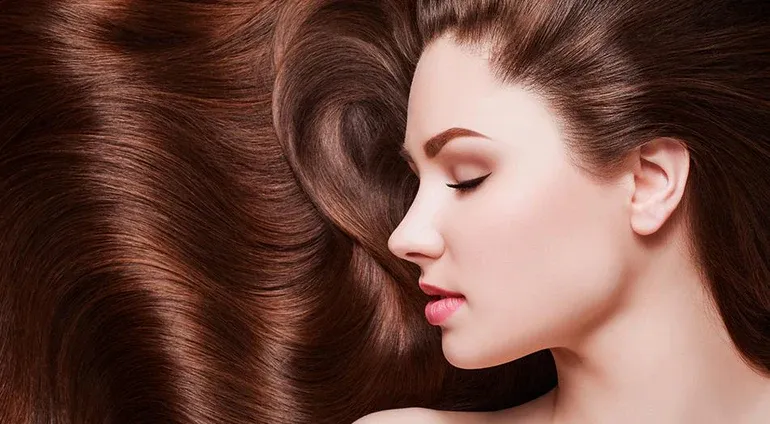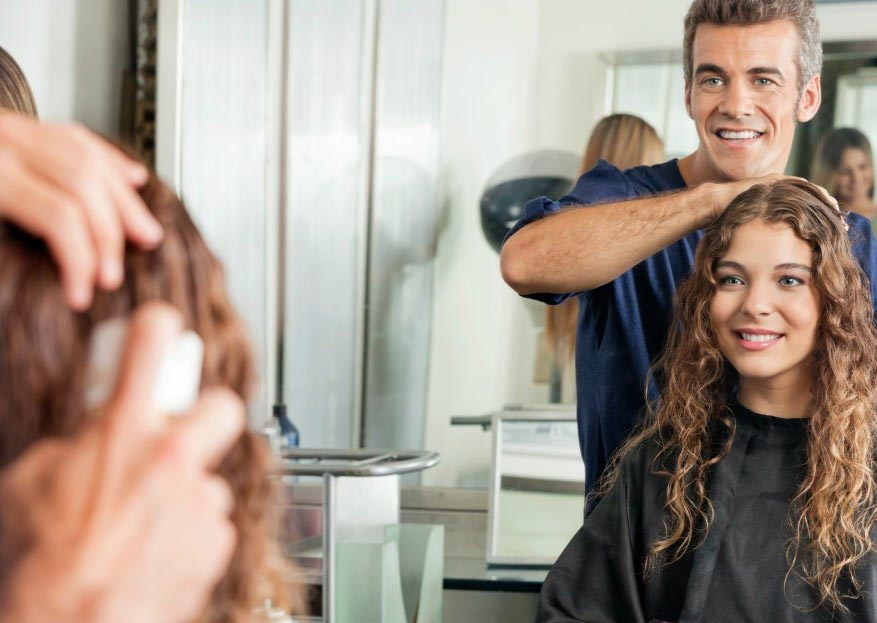Washing your hair is a key part of personal hygiene, but finding the right balance can be tricky. Some people may be tempted to wash their hair twice a day to keep it fresh, but this practice might not be as beneficial as it seems. How often should you really shampoo your hair? Let’s break it down and explore the ideal hair washing frequency, taking into account hair type, lifestyle, and scalp health.
Is Washing Your Hair Twice a Day Harmful?

Washing your hair twice a day with shampoo might sound like a thorough approach to cleanliness, but it can actually do more harm than good. Here’s why over-washing could be problematic:
1. Stripping Natural Oils
Your scalp produces sebum, a natural oil that keeps hair healthy and moisturized. Shampooing twice a day can strip away these natural oils, leaving your scalp dry and irritated. Sebum plays a crucial role in protecting the scalp and maintaining hair’s natural shine and moisture.
- Why It’s Bad: Without sebum, hair becomes dry, dull, and more prone to damage.
2. Increased Dryness and Brittle Hair
Excessive shampooing can make your hair dry and brittle, increasing the risk of breakage and split ends. Hair needs some level of natural oil to remain flexible and resilient.
- Why It’s Bad: Hair without sufficient moisture tends to frizz, lacks shine, and feels coarse to the touch.
3. Disrupting the Scalp’s pH Balance
Your scalp has a natural pH level that helps maintain its health and prevent conditions like dandruff or scalp acne. Washing too frequently can disrupt this balance, leading to irritation and even more scalp issues.
- Why It’s Bad: A disrupted pH can cause itchiness, flakiness, and other scalp problems that make hair care even more challenging.
4. Triggering Excess Oil Production
When your scalp is stripped of its natural oils, it may try to compensate by producing even more oil, creating a vicious cycle. You might end up feeling like you need to wash your hair even more frequently.
- Why It’s Bad: Over time, you may find yourself battling greasier hair and washing it more often, which further perpetuates the problem.
How Often Should You Wash Your Hair?
The ideal frequency for shampooing varies from person to person, depending on several factors like hair type, scalp condition, and lifestyle. Here are some general guidelines to help you determine the best routine:
1. Oily Hair and Scalp
If you have an oily scalp, you might feel the need to wash your hair daily. However, even those with oily hair should try to limit washing to once a day. Over time, you may find that your scalp adjusts and produces less oil as you reduce washing frequency.
- Best Routine: Aim to wash your hair every day or every other day, depending on how oily your scalp gets.
2. Dry, Curly, or Coarse Hair

Dry or curly hair tends to require more moisture to stay healthy, and over-washing can remove the natural oils that keep it hydrated. People with curly or coarse hair often find that washing 2-3 times a week works best.
- Best Routine: Wash your hair two to three times a week to maintain moisture, using hydrating shampoos and conditioners.
3. Normal Hair
Those with normal hair (not too oily or dry) might find that washing every other day or a few times a week is sufficient. It’s all about finding a balance that keeps your hair clean without overdoing it.
- Best Routine: Wash every other day or 2-4 times a week, adjusting based on personal preference and lifestyle.
4. Athletes or Those Who Sweat Heavily
If you work out regularly or sweat heavily, you may need to wash your hair more often to prevent sweat buildup and scalp irritation. However, rinsing with water after a workout can be enough to remove sweat without stripping natural oils.
- Best Routine: Consider rinsing with water or using a gentle shampoo after intense physical activity.
Alternatives to Daily Shampooing
If you’re looking to cut back on shampooing but still want to maintain fresh and clean hair, there are some effective alternatives:
1. Use Dry Shampoo

Dry shampoo absorbs excess oil and refreshes your hair without water. It’s a great option for in-between washes, especially if you’re trying to extend the life of your style or simply reduce washing frequency.
- Why It Works: It helps control oil without disrupting your hair’s natural moisture balance.
2. Rinse with Water
On days when you don’t shampoo, a simple rinse with water can help remove dirt and sweat. This can be especially effective if you haven’t been particularly active but still want to freshen up.
- Why It Works: It cleanses lightly without the harsh effects of daily shampooing.
3. Use Sulfate-Free Shampoos
Sulfate-free shampoos are gentler on the scalp and hair, helping maintain moisture while still providing effective cleansing.
- Why It Works: Sulfates can be harsh and drying, so choosing a gentler formula can help protect your hair’s natural oils.
Tailoring Your Hair Care Routine

The ideal hair washing frequency is unique to each person. Here are some tips to help you find the best routine:
1. Pay Attention to Your Hair’s Response
Notice how your hair and scalp feel after different washing schedules. If it feels too dry or starts to flake, you might be washing too often. If it gets greasy too quickly, you may need to adjust your routine.
2. Experiment with Different Products
Try different shampoos, conditioners, and other hair care products to see which ones work best for your hair type. Some products are formulated specifically for dry, oily, or normal hair and can make a significant difference in maintaining hair health.
3. Consult a Hair Care Professional

If you’re struggling to find the right balance, consult with a hairstylist or dermatologist. They can provide personalized advice based on your hair type, lifestyle, and any underlying scalp issues.
Conclusion
Washing your hair twice a day with shampoo is generally not recommended due to the potential for drying out the scalp and damaging hair. The ideal hair washing routine depends on individual factors like hair type, scalp condition, and lifestyle. Pay attention to how your hair responds to different schedules, and don’t be afraid to adjust based on your needs. Finding the right balance is key to maintaining healthy, vibrant hair—without overdoing it.


